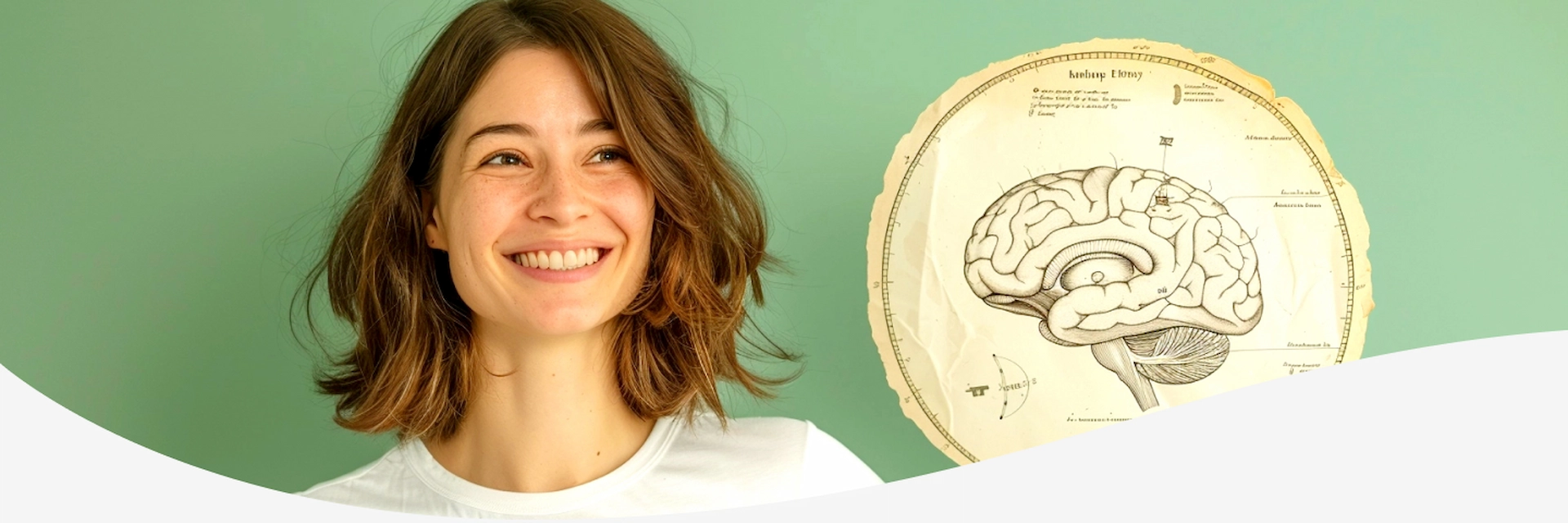
Constipation: How Mental Health Can Tie Your Gut in Knots
Ever heard the saying, "gut-wrenching decision"? It's not just a figure of speech; your gut and brain are in constant chatter. When mental health issues enter the chat, they can throw more than just your day out of order—they can tie your gut in knots, too. Let's unravel this tangled conversation and get things moving smoothly once again.
The Inner Workings of Your Second Brain
Gut Feelings: The Enteric Nervous System Explained
Inside the winding corridors of your gut lies a network so intricate that it's been dubbed the "second brain". Yes, nestled within those intestinal walls are layers of neurons that make up the enteric nervous system (ENS), communicating in a flurry of signals. This system is the maestro of the symphony that is your digestion, ensuring that the movement of food through your bowels is coordinated.1
- The Gut-Brain Connection: Decoding Digestive Messages
Did you know that your gut and brain are in constant communication? They exchange messages via the vagus nerve. This bi-directional communication is crucial for maintaining digestive harmony. But when mental stress enters the conversation, it can disrupt this communication, leading to digestive issues like constipation.1
- Neurotransmitters: The Body's Messengers
Neurotransmitters are like the body's messengers, delivering important signals such as "digest now" or "relax those muscles". However, stress can interfere with this process, causing disruptions in the digestive system.1
- When Stress Impacts Digestion
Stress doesn't just affect your mood; it can also impact your gut. When stress levels are high, the digestive process may slow down, leading to constipation. It's like your gut, normally so efficient, starts to lag, causing discomfort.1

Down in the Dumps? So Is Your Digestion
- Anxiety: When Your Gut Is on Edge: Anxiety can make your gut jittery, leading to constipation.1
- Depression's Impact on Digestion: Depression can slow down your digestive system, causing constipation. This aligns with findings that disturbances in the gut-brain axis have been implicated in a range of disorders, including mood disturbances and gastrointestinal conditions.1
- The Gut-Mood Connection: Your mood can influence your gut, and vice versa. It's a two-way street that can affect your overall well-being.1
Bacterial Balance: The Microbiome's Role
- Your gut is home to a diverse community of microbes that play a significant role in your health. These microbes communicate and interact, influencing digestion and mood.1
- Your Gut's Microbial Community: When the good bacteria thrive, they support digestive health. But when the balance is disrupted, it can lead to issues like constipation.1
- Dysbiosis occurs when harmful bacteria outnumber the beneficial ones in your gut, disrupting its natural balance and potentially resulting in constipation. It's like having unwanted guests crash your gut's party, causing chaos and discomfort.
- Restoring Balance with Probiotics: Imagine a microbial genie, spreading good vibes and balance.


Which Dulcolax® is right for you?
Answer few questions about your poop routine and we'll suggest the right product for you.
Spotting the Red Flags: Recognizing Constipation
The Impact of Stress on Digestion
Stress can exacerbate digestive issues like constipation.
- Short-term stress, often referred to as acute stress, can provoke a range of bodily reactions, including temporary disturbances in the digestive process. During moments of acute stress, the body's "fight or flight" response kicks in, diverting resources away from non-essential functions like digestion in order to deal with perceived threats. This diversion can lead to a slowdown in the movement of food through the digestive tract, potentially resulting in constipation. So, it's not uncommon to experience bouts of constipation during periods of acute stress.1
- On the other hand, long-term stress, known as chronic stress, poses more significant challenges to digestive health. When stress becomes a persistent presence in our lives, it can disrupt the delicate balance of our bodily systems, including the digestive system. Chronic stress can lead to ongoing digestive issues, which may include not only constipation but also other problems such as irritable bowel syndrome (IBS), acid reflux, and ulcers. These conditions can have a significant impact on one's overall well-being, affecting not only physical health but also mental and emotional health.1
How Constipation Affects Mental Health
Constipation can have a significant impact on mental health.
Physical Discomfort: The sensation of bloating, abdominal pain, and the persistent feeling of incomplete evacuation can significantly diminish one's quality of life. This discomfort can be particularly problematic in professional settings, where individuals may find it challenging to focus on tasks and maintain productivity while grappling with the physical discomfort caused by constipation.1
Finding Relief: Addressing constipation can improve both physical and mental health.1
So, next time you're feeling bloated, strained, and stuck with hard, dry stools, remember, it might not just be a physical inconvenience.
Strategies for Smooth Moves
The Importance of Diet and Lifestyle
What you eat and how you live can greatly impact your digestive health.
- Fiber and Hydration: A diet rich in fiber and staying hydrated is key for keeping things moving smoothly. The significant role of dietary choices in maintaining gastrointestinal health is underscored by the intricate relationship between the gut and overall well-being.1
- Exercise Regularly: Regular exercise can promote healthy digestion and alleviate constipation. The positive impacts of lifestyle factors on digestive health further highlight the complex interactions within the gut-brain axis.1
- Maintain a Routine: Establishing regular eating and bathroom habits can help regulate your digestive system. Consistency in lifestyle routines supports the efficient function of the gut's enteric nervous system (ENS) and its communication with the brain.1
- Avoiding Bad Habits: Stress eating and poor dietary choices can worsen constipation. Maintaining a healthy lifestyle is essential. Genie nods enthusiastically, giving a thumbs up to healthy habits. The importance of avoiding behaviors that disrupt the gut-brain communication is crucial for digestive health.1
Mental Techniques for Digestive Health
Your mental well-being plays a significant role in digestive health.
- Cognitive-Behavioral Therapy (CBT): CBT techniques can help manage stress and improve digestive function. The effectiveness of psychological therapies underscores the bidirectional communication between the brain and the gut, demonstrating how mental health interventions can influence physical health, particularly digestive processes.1
- Mindfulness Practices: Mindfulness can promote relaxation and alleviate digestive discomfort. Engaging in practices that enhance mental well-being can have positive effects on the gut, highlighting the interconnectedness of mental and digestive health.1
- Listening to Your Body: Paying attention to your body's signals can help you identify and address digestive issues. Genie appears, meditating in a serene pose. Recognizing and responding to the body's needs is a key aspect of maintaining both mental and digestive health, emphasizing the holistic nature of the gut-brain axis.1
Dulcolax as a solution for constipation relief
Dulcolax Tablets reactivate your natural gut rhythm for effective constipation relief *. Its non-habit-forming formula provides predictable relief in as little as 6 hours**, starting with just 1 tablet, when used as directed.
*when taken at night
**works in 6-12 hours
In conclusion, understanding the connection between mental health and digestion is crucial for overall well-being. By addressing both physical and emotional aspects, you can effectively manage constipation and improve your quality of life. Remember, when it comes to your health, every aspect matters.
Disclaimer:
Partly generated by Gen AI
Sources
- Mayer EA. Gut feelings: the emerging biology of gut-brain communication. Nat Rev Neurosci. 2011 Aug;12(8):453-466. Available from: https://pubmed.ncbi.nlm.nih.gov/21750565/
- Clarke G, Grenham S, Scully P, et al. The microbiome-gut-brain axis during early life regulates the hippocampal serotonergic system in a sex-dependent manner. Mol Psychiatry. 2013 Jun;18(6):666-673. Available from: https://pubmed.ncbi.nlm.nih.gov/22688187/
- Drossman DA. Functional Gastrointestinal Disorders: History, Pathophysiology, Clinical Features, and Rome IV. Gastroenterology. 2016 May;[Epub ahead of print]. Available from: https://pubmed.ncbi.nlm.nih.gov/27144617/








.webp)

.webp)
.webp)





.webp)